Posted on 12/30/2022
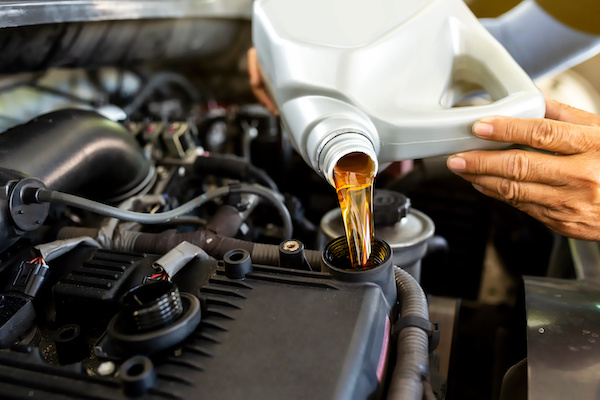
Your car is a significant investment and one of your most essential things. It's vital to take proper care of your car to provide reliable performance for as long as possible. To do this, preventive maintenance is key. By regularly performing car preventive maintenance services, you can avoid costly repairs by catching minor problems before they become big ones. Below are some of the top car preventive maintenance services you should consider to keep your vehicle running safely and efficiently. Oil Change An oil change is one of the most basic and necessary forms of car maintenance. You can keep your engine running smoothly and efficiently by changing your oil regularly, typically every 5,000 miles or six months. This is especially important for high-performance vehicles that require a higher oil quality. Tire Alignment Another necessary preventive maintenance service to consider is a tire alignment checkup. This helps ensure that your tires are correctly aligned, wear evenly ... read more
Posted on 11/22/2022
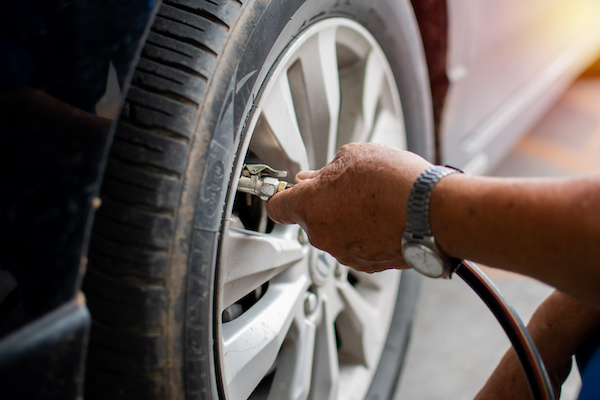
When you think of tire maintenance, one of the first things that should pop in your head is tire pressure. Tire pressure checks are one of the simplest, yet effective, ways to keep your tires in good shape. And the best part is, you can do it by yourself without relying on your trusted mechanic. Why Is Tire Pressure So Important? Properly filled are a must to protect your safety on the road. When you maintain the right tire pressure, typically measured in PSI or pounds per square inch, your vehicle is able to make proper surface contact with the road. Most tires are inflated between 30-35 psi, but you should always refer to your manufacturer’s owner’s handbook to be sure. You can find your vehicle’s recommended tire pressure on the driver’s door jamb sticker too. Tire pressure is so important because improper tire pressure can put you or your car at risk of a tire blowout when it is overly inflated. When your tires are under inflated, they will w ... read more
Posted on 10/31/2022
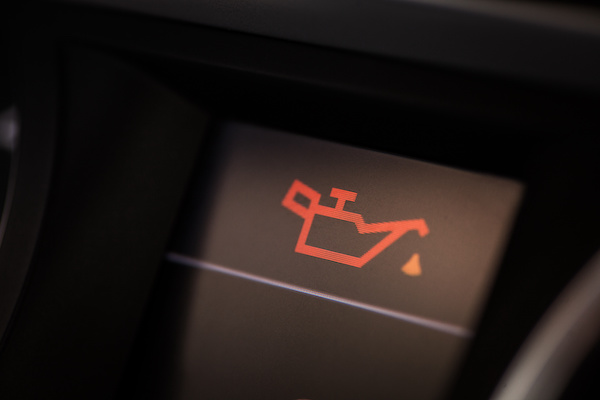
The little lights on your dashboard rarely come on, and when they do, it often means there's something wrong. Once the oil light catches your attention, you'll often start wondering how long it has been on and how much of an emergency you've had. It would help if you didn't fret because that's an early warning sign of a problem, not an actual one. So, why does your oil light come on? Read on to know the possible causes that make the light pop up and whether it's safe to drive with the light on. Why does the oil light turn on? A lit oil light often shows low oil pressure in your vehicle or low engine oil levels. Low oil pressure often results from various factors, including oil leaks, dirty oil, or lack of an oil refill. Also, a faulty oil pump or a malfunctioning oil pressure sensor may cause the light to turn on. Can you drive with the oil light on? No. You shouldn't drive with the oil light on unless you have an emergency or want to move your car off ... read more
Posted on 9/26/2022
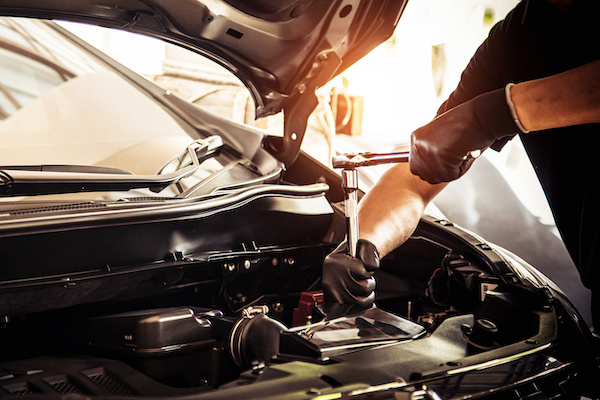
Most people are aware of the importance of having regularly scheduled service appointments for their vehicles. But what happens if you miss a vehicle service? Find out in this article! What Happens if I Miss a Vehicle Service? If you miss a vehicle service, the most likely scenario is that nothing will happen. Your car will continue to run perfectly fine, and you may not notice any issues for some time. However, eventually, your vehicle will start to experience problems. It's important to remember that regular vehicle maintenance is not just about keeping your car running smoothly. It's also about preventing big problems down the road. By getting your vehicle serviced on a regular basis, you can avoid expensive repairs and keep your car running great for many years to come. Will the Vehicle Break Down? If you miss a vehicle service, there is a possibility that your car will break down. However, this is not always the case. Sometimes, people miss vehicle services and their ... read more
Posted on 8/28/2022
.jpeg)
Vehicle batteries are an essential part of the electrical system. It stores all the power to start your engine, power your phone charger, and keep your car rolling. That’s why it’s so important to know when to replace your battery and how to extend its life. On average, car batteries last between 3 and 5 years. Depending on the climate you operate your vehicle in, your battery may die sooner or later. To be specific, batteries are prone to drain quicker in the heat. The warmth causes the chemicals in your battery to evaporate quicker, which can ultimately damage the entire battery. For instance, drivers in Florida or Georgia may need to change their car battery sooner than those in Alaska. Regardless of temperature, let’s take a look at some things that all drivers can do to extend the wear on their vehicle battery: 1) Limit Short Trips Too many frequent trips of short duration drives can do more harm to your car battery than you think ... read more
Posted on 7/26/2022
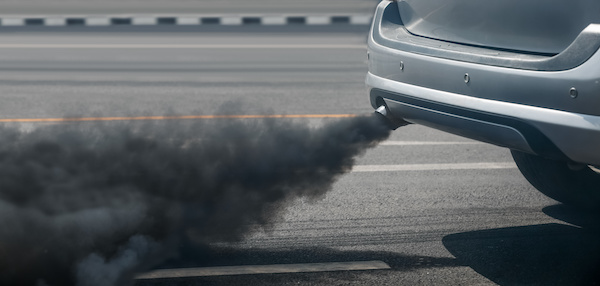
Have you noticed smoke coming from your tailpipe when you start your car in the morning? No need to worry. It's just water vapor from condensation in the exhaust system that has gathered overnight. But if you notice a cloud of smoke billowing from the tailpipe, it should be a cause of concern. Knowing the smell and color of the smoke can help you understand the cause. Common Cause of Car Smoke Car smoke can be caused when motor oil or other fluids leak or spill due to a defective seal or gasket onto the hot engine or your car's exhaust system. These other fluids that may leak include engine coolant, transmission, power steering, and brake fluid. Window washer solvent may also leak. Significance of Different Smoke Colors White smoke – white smoke could indicate engine trouble. Maybe a cracked engine block, cracked cylinder, a leaking head gasket, or a coolant is getting sprayed onto the combustion chamber. A sweet smell from the coolant usually accompanies the smoke. H ... read more
Posted on 6/29/2022
.jpeg)
With summer finally here, there are 3 things that you need to worry about when going on a road trip: traffic, heat, and large crowds. Now that travel restrictions have significantly loosened up compared to last summer and the summer before, you’re going to need to prepare like never before. Here are several things to consider: Summertime is the peak season for travel after all. However, it can get even busier on the weekends and around holidays like the 4th of July. If you want to avoid extra traffic, we recommend hitting the road on a weekday. Also, the sooner you hit the road, the better. We get that you have to beat the heat with sunscreen, lighter clothes, etc. Consider your car too. Heat can be extremely taxing on your vehicle’s critical systems and can cause your car to overheat. Make sure you get the maintenance you need, including: Oil change Brake service Cooling system service Windshield washer replacement Battery check Belt and hose inspec ... read more
Posted on 5/26/2022
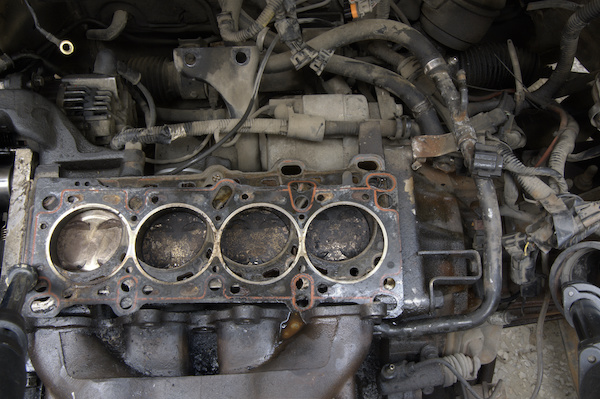
Your vehicle's engine is protected by the head gasket. This gasket between the cylinder block and cylinder head (when working properly) prevents fluids from entering the cylinders causing issues with your motor. What happens when the head gasket doesn't work properly? What are the signs of a head gasket leak? When your head gasket isn't working properly, it has a leak. In other words, it's not doing its job of keeping fluids such as oil or coolant from getting in the cylinders and damaging the cylinder block, with coolant being the usual culprit. This is often referred to as "blowing" the head gasket. Signs Your Head Gasket is Leaking There are signs that you have an issue with the head gasket. These include: White smoke from the tailpipe is a sign that your head gasket is letting coolant leak into the cylinder block. If you notice bubbling sounds coming from your radiator or coolant reservoir, that is another sign the head gasket has a leak. The bubbling ... read more
Posted on 4/27/2022
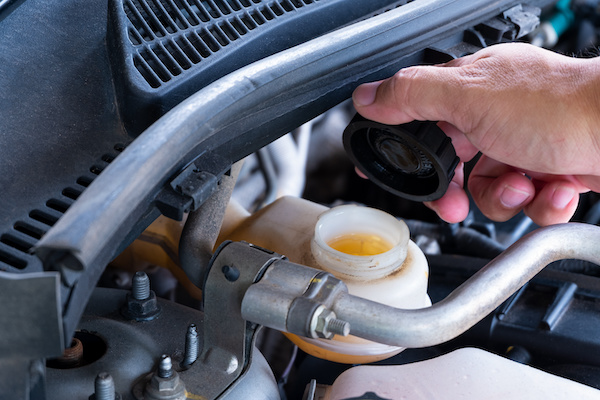
Your car's brake fluid is one of your vehicle's most critical braking system components. When your car's brake fluid is low, your brake system is at risk of failing. The low level of brake fluid could result from many different factors. For example, it could be a symptom of a more significant problem with your car's brake system. Here are signs that may mean your car's brake fluid is low. Your Brakes Are Slipping If your brakes are feeling spongy, they may be losing grip. You may experience a much heavier feel when you press on the brake pedal when this happens. This signifies that your brake fluid level is low. Your Wheels Are Spongy A spongy feeling to your brakes could signify a low brake fluid level. A spongy feel to your brakes could also suggest that your brake pads need to be replaced. Your Brakes fluid is dirty. Dirty brake fluid could indicate a leaky brake caliper. If your brake fluid is dirty, you should have it inspected as soon as possible. Dirty ... read more
Posted on 3/28/2022
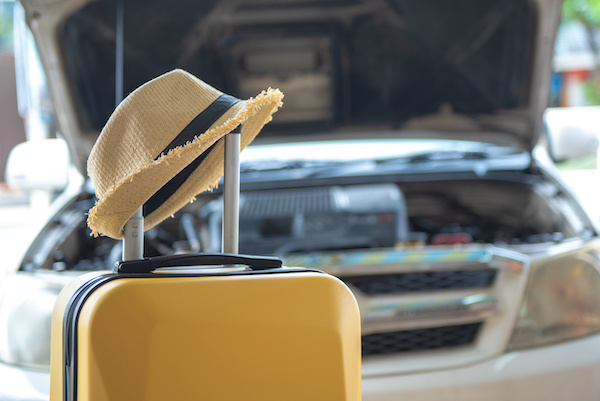
Planning a road trip any time soon? We believe that the most important pre-trip measure you should take is a vehicle inspection. If you're heading out on the road for a long drive, the last thing you want is to be stranded in the middle of nowhere with a vehicle issue. Getting your car looked at is great for your peace of mind as well as your safety on the road. Before you embark on your trip, a vehicle inspection is highly recommended. A pre-trip check will inspect all safety components and major parts of your vehicle to ensure that your car is running at its best. This includes the braking system, your car battery, tires, fluids, filters, and more. If an issue is found, we will inform you of the severity of the issue and what problems it can cause on a road trip. If your vehicle does need service or repair, we will be sure to perform the fix quickly so that you can be on schedule with your trip. We recommend having your vehicle inspected at least a week before your trip - just ... read more